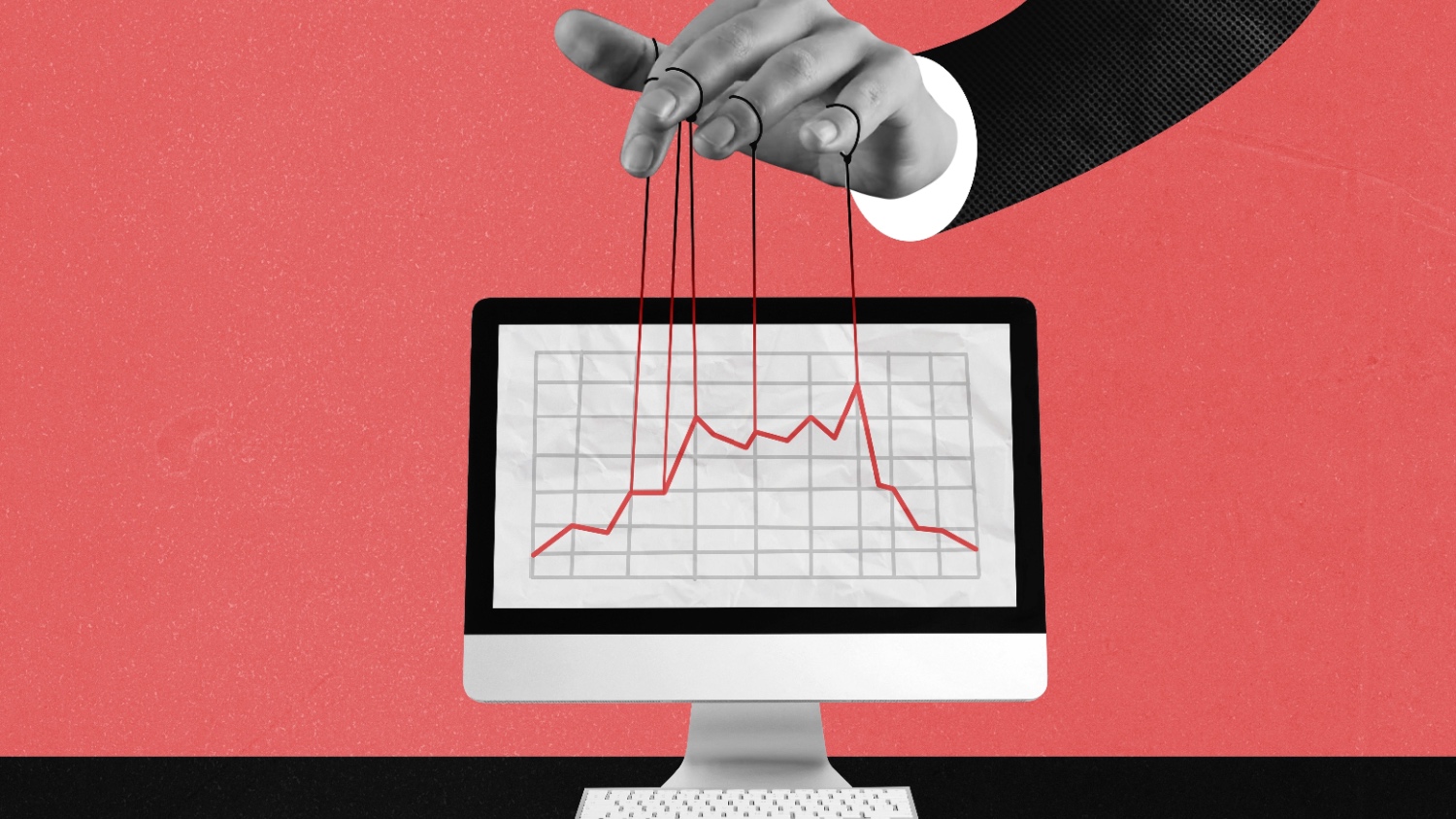Breaking Down Bitcoin
Richard Warr answers commonly asked questions about the wild world of cryptocurrency.

By Caroline Barnhill
As the buzz around cryptocurrency builds – like the man who lost his password and is blocked from his $220 million fortune – many mainstream Americans are still trying to figure out what in the world is a Bitcoin or a Dogecoin? And should I own a digital wallet?
Since many financial experts believe that cryptocurrency, in one form or another, is here to stay, we sat down with finance professor, and Poole College of Management’s associate dean for faculty and research, Richard Warr to find out more about this new world of currency.
What is cryptocurrency?
RW: A cryptocurrency (crypto for short) is a virtual asset stored in computers around the world that can, in theory, be used just like a normal currency to buy and sell things. The big catch is that the person you are trading with must be willing to accept your cryptocurrency. Most people buy cryptos as an investment in the hope that they will increase in value and not as an alternative to regular currency.
The most well-known cryptocurrency, Bitcoin, has ranged in value in recent years from $125 to more than $38,000. It’s known for being incredibly volatile and changes dramatically in value over very short periods of time. Recently, a relative new coin, Dogecoin, has been dramatically increasing in value after being touted by various Reddit forums and Elon Musk.
You can buy cryptos through various “exchanges,” such as Coinbase, and many have phone apps to allow easy trading. Be warned though; there have been several high-profile hackings of exchanges, so you should only use a well-respected platform that has strong security protocols.
What is cryptocurrency’s connection to blockchain technology?
RW: Cryptos are created using blockchain technology. A blockchain is basically a long list documenting all the transactions (blocks) that an individual unit of cryptocurrency has been used in. This list (or chain of blocks) is duplicated in computers around the world, which provides its security because no single person can alter the contents of a block without approval of other computers in the network.
Let’s say I want to buy some Bitcoin. When I pay money (using an exchange), a new block is created indicating the transaction and that I am now the owner. However, before this transaction can be certified as a legitimate addition to the blockchain, it must be verified by other computers in the blockchain network. Once it has been verified, it will be formally added to the blockchain, and I’ll be the owner of some Bitcoin.
How does cryptocurrency work?
RW: While blockchains are great for recording transaction data and sharing it with a wide number of participants in the network, for them to work well, the participants must have an incentive to check new additions to the blockchain for accuracy and ensure that someone hasn’t tried to fraudulently alter it. This is where cryptocurrency comes in. The process of verifying new blocks of the blockchain requires a large amount of computing power, so as a reward for doing this, many cryptocurrency blockchains give out new units of cryptocurrency to the first person who certifies that a new block is legitimate. In my previous example, when I buy some Bitcoin, I am changing the blockchain. Before this is certified and allowed to be recorded permanently in the blockchain, users must solve an algorithm to prove that my transaction is legitimate. The first user who does this will get a small amount of Bitcoin as a reward. This process is called “mining.”
An interesting side point about crypto blockchains is that they are anonymous, in that no record that can be tied to any individual shows up in the blockchain. This makes cryptocurrencies quite well suited for nefarious purposes – such as drug dealing.
Is cryptocurrency backed by the national treasury? If not, what makes it a legitimate currency?
RW: Cryptocurrencies are not backed by the federal government and they are only minimally regulated so it is not considered a legitimate currency by most people. However, a few strong supporters of cryptocurrency believe that the world would be better if we all used a currency that wasn’t under the control of any government body.
The real problem with using cryptos for day-to-day transactions, however, is that their value fluctuates so much. This means that a coffee shop owner would have to constantly change the price of a cup of coffee to reflect the latest value of the crypto.
Is there a finite amount of cryptocurrency?
RW: It depends on the cryptocurrency. In the case of Bitcoin, yes there is, but the algorithm by which new Bitcoin is created (when people mine it) is structured so that it gets progressively harder and harder to get the next unit of bitcoin. In this way, it’s very much like mining. Early on, there’s plenty of the resource to be mined, but as time goes by, each new amount of the resource gets increasingly harder to dig out.
What gives cryptocurrency value?
RW: Unlike stocks and bonds, which create cash flows for investors, Bitcoin generates no income. Furthermore, its value isn’t tied to any real asset (like a precious metal). Instead, all that Bitcoin has in terms of value is the perceived scarcity and the balance between demand and supply. So unlike a share of stock, it’s very hard to assess the “true” value for a unit of cryptocurrency. That said, at a minimum, it has some small level of value, based upon its ability to be used in transactions. But this small value is of little interest to most Bitcoin investors who are using it as a method of speculation.
Who “oversees” cryptocurrency to ensure its legitimacy?
RW: In terms of overseeing cryptocurrency, no single individual or organization manages the currency – it’s managed collectively around the world by users. The best analogy I’ve seen is its comparison to email. Nobody oversees email and yet we all use it because we all have computers that follow the shared email protocols. It’s this lack of government control that appeals to many advocates of cryptocurrency.
Who created cryptocurrency? What’s the rationale behind it?
RW: The original idea for blockchain and cryptocurrency was outlined in a white paper by a person called Satoshi Nakamoto. Bitcoin was then developed using this outline. What’s interesting about this origin story is no one knows who Satoshi Nakamoto really is. There doesn’t appear to be a real person by that name, so there’s a great deal of speculation about who the “real” Satoshi is. This all goes to add to the mystery and intrigue about cryptocurrencies.
Are there any other uses for blockchain technology beyond currency?
RW: Aside from cryptocurrency, blockchain has many potential non-currency uses as a means for storing and sharing transaction data. For example, several organizations have tried to use it in supply chains as a way to track unique parts.
The key problem however, with non-currency uses of blockchain is that you need participants in the blockchain network to regularly update and verify new transactions. You also need to ensure that a majority of the participants can never collude to fraudulently change the blockchain to their own advantage at the expense of the others in the network. This problem is avoided in cryptocurrency by the mining process, but in non-crypto blockchains it requires additional elaborate protocols to ensure fairness.
Any final thoughts on Cryptos?
RW: I’d be remiss by not making it abundantly clear that by investing in cryptos such as Bitcoin, you could lose all or most of your money if the price plummets (which it has done in the past). So never invest more money than you are prepared to lose. Second, Bitcoin is really bad for the environment. It’s been estimated that the process of maintaining the Bitcoin network – the certification of new transactions through mining – uses more electricity than the entire country of Switzerland.
Is there another business question you’d like our Poole College experts to explain? If so, fill out the form and we’ll consider featuring it in an upcoming Poole Thought Leadership feature.
- Categories:
- Series:


